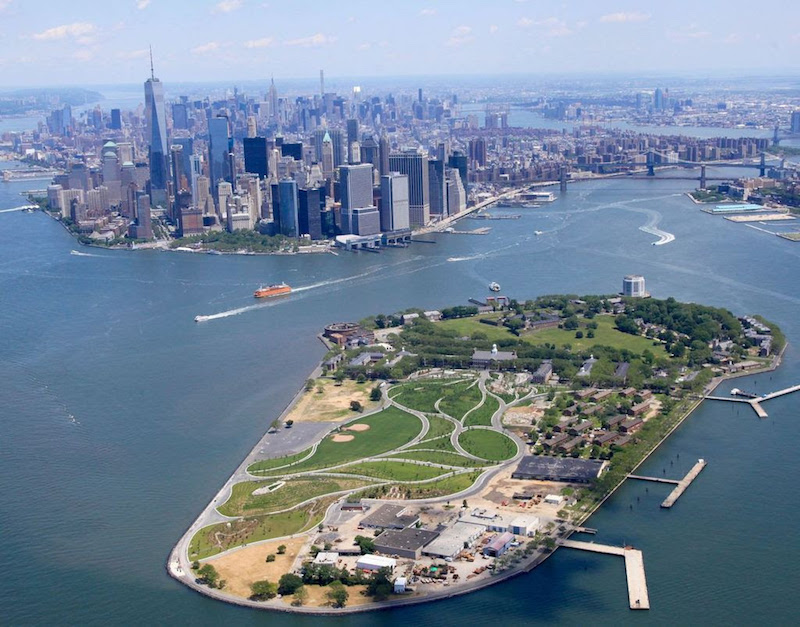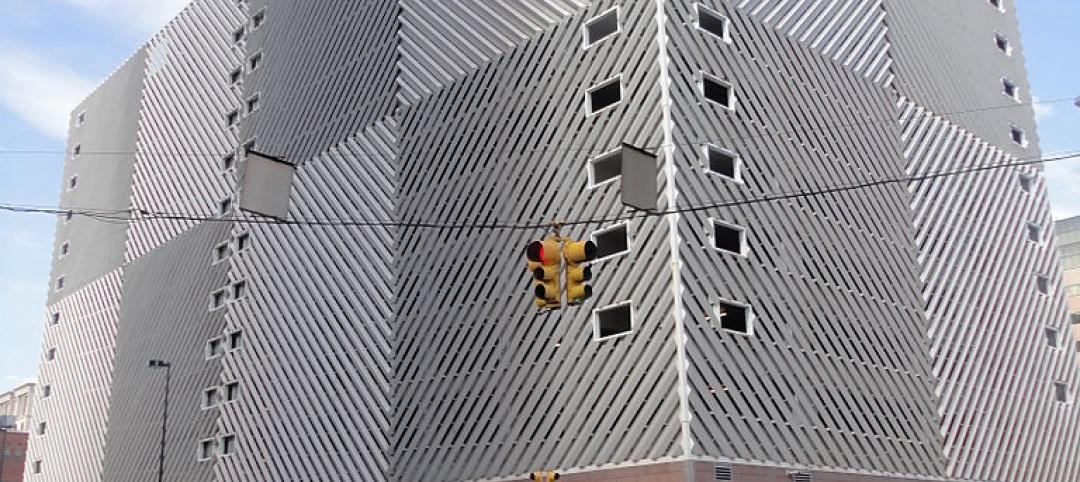Rising between 25 and 70 feet above sea level, four man-made hills on the southern tip of New York City’s Governors Island opened to the public in July, one full year ahead of schedule. Dubbed The Hills, the new attraction boasts walking paths, recreational opportunities, and full 360-degree vistas of New York Harbor. And while the Hills offer strong aesthetic value and public space for outdoor activities, they also provide a resiliency measure to protect the island against rising sea levels.
The first phase of construction for the island, which can only be accessed by ferry, was completed in 2014 and consisted of 30 new acres of park and public spaces; an upgrade to Soissons Dock, the only vehicular landing on the island; transfer bridges and approach platforms at the dock; reconstruction of the seawall and the island’s drainage system; restoration of potable water and electrical distribution systems; and stabilization of historic buildings.
As part of a joint venture, STV is providing resident engineering inspection and design review services for the implementation of the Governors Island Park and Public Space Master Plan. In addition to changing 10 acres of flat land into rolling hills that would have Julie Andrews singing like it was 1965, the island’s Master Plan also calls for over 75,000 new plantings, which includes 42,963 shrubs and 2,960 trees.
In creating the hills, STV saved in construction costs by using terraced, mechanically stabilized earth and lightweight fill rather than going the more traditional route using deep soil mixing methods. In addition to the monetary savings, this method also reduced the overall weight on the underground utilities and sea well.
Included in the four hills are Grassy Hill, which is the first to be seen when approaching from the park; Slide Hill, which includes four slides built into the hill itself, including a 57-foot long slide that is the longest in New York City; Outlook Hill, which features “The Scramble,” a shortcut cutting straight up the hill constructed from blocks of granite from the seawall the Army placed in the harbor when they expanded the island in 1905; and Discovery Hill, which features a site-specific work of art from British artist Rachel Whiteread.
With The Hills completed, the next step of the Master Plan for Governors Island calls for improvements to Picnic Point and the 2.2 mile promenade.
West 8 provided design services for the island’s transformation.
Related Stories
| Jun 12, 2014
Austrian university develops 'inflatable' concrete dome method
Constructing a concrete dome is a costly process, but this may change soon. A team from the Vienna University of Technology has developed a method that allows concrete domes to form with the use of air and steel cables instead of expensive, timber supporting structures.
| Jun 11, 2014
Esri’s interactive guide to 2014 World Cup Stadiums
California-based Esri, a supplier of GIS software, created a nifty interactive map that gives viewers a satellite perspective of Brazil’s many new stadiums.
| Jun 4, 2014
Construction team named for Atlanta Braves ballpark
A joint venture between Barton Malow, Brasfield & Gorrie, Mortenson Construction, and New South Construction will build the Atlanta Braves ballpark, which is scheduled to open in early 2017. Check out the latest renderings of the plan.
| Jun 2, 2014
Parking structures group launches LEED-type program for parking garages
The Green Parking Council, an affiliate of the International Parking Institute, has launched the Green Garage Certification program, the parking industry equivalent of LEED certification.
| May 29, 2014
7 cost-effective ways to make U.S. infrastructure more resilient
Moving critical elements to higher ground and designing for longer lifespans are just some of the ways cities and governments can make infrastructure more resilient to natural disasters and climate change, writes Richard Cavallaro, President of Skanska USA Civil.
| May 22, 2014
Just two years after opening, $60 million high school stadium will close for repairs
The 18,000-seat Eagle Stadium in Allen, Texas, opened in 2012 to much fanfare. But cracks recently began to appear throughout the structure, causing to the school district to close the facility.
| May 20, 2014
Kinetic Architecture: New book explores innovations in active façades
The book, co-authored by Arup's Russell Fortmeyer, illustrates the various ways architects, consultants, and engineers approach energy and comfort by manipulating air, water, and light through the layers of passive and active building envelope systems.
| May 19, 2014
What can architects learn from nature’s 3.8 billion years of experience?
In a new report, HOK and Biomimicry 3.8 partnered to study how lessons from the temperate broadleaf forest biome, which houses many of the world’s largest population centers, can inform the design of the built environment.
| May 16, 2014
Toyo Ito leads petition to scrap Zaha Hadid's 2020 Olympic Stadium project
Ito and other Japanese architects cite excessive costs, massive size, and the project's potentially negative impact on surrounding public spaces as reasons for nixing Hadid's plan.
| May 13, 2014
First look: Nadel's $1.5 billion Dalian, China, Sports Center
In addition to five major sports venues, the Dalian Sports Center includes a 30-story, 440-room, 5-star Kempinski full-service hotel and conference center and a 40,500-square-meter athletes’ training facility and office building.

















